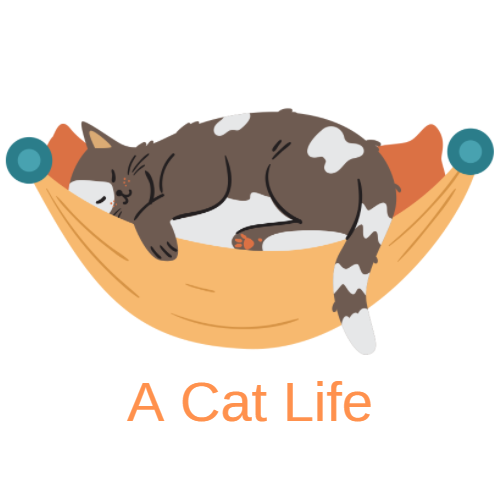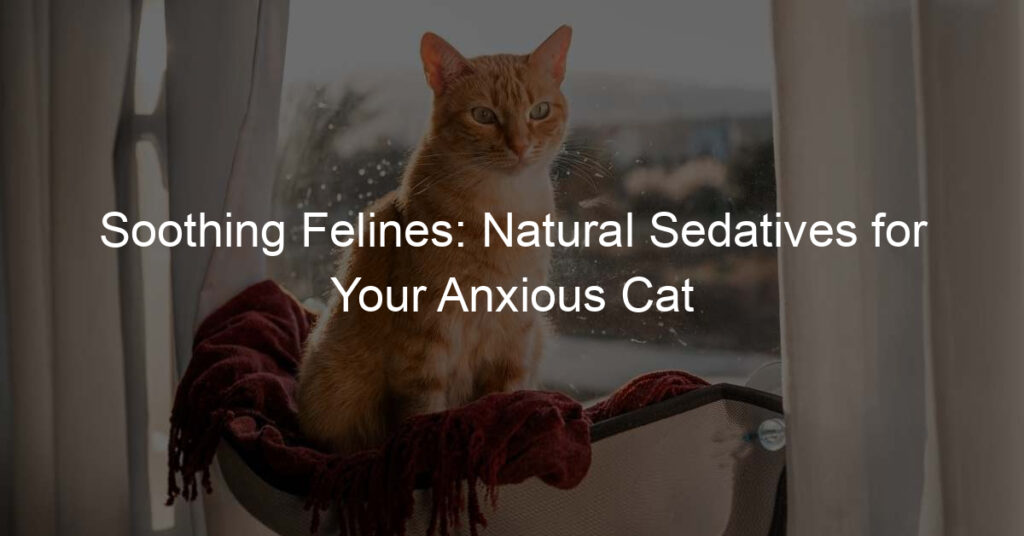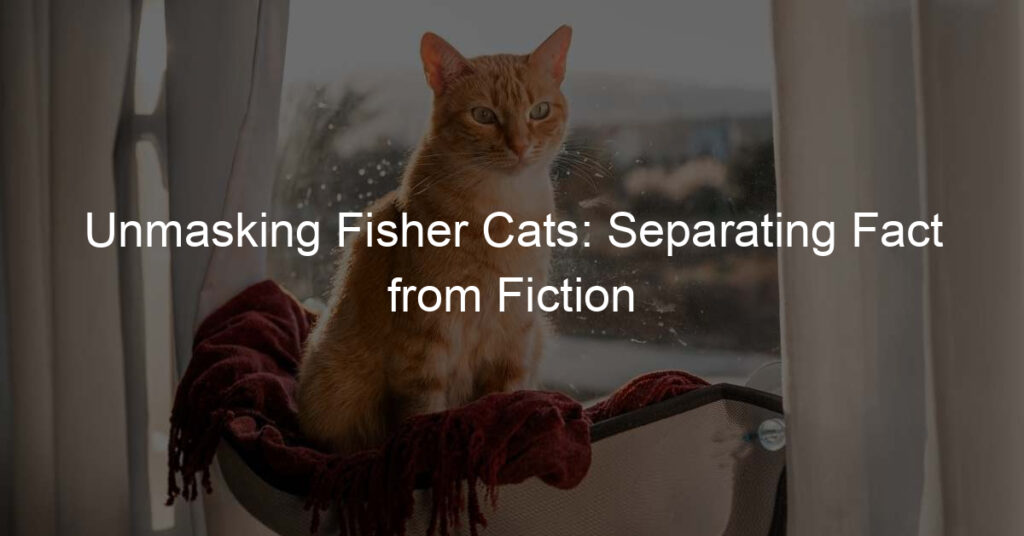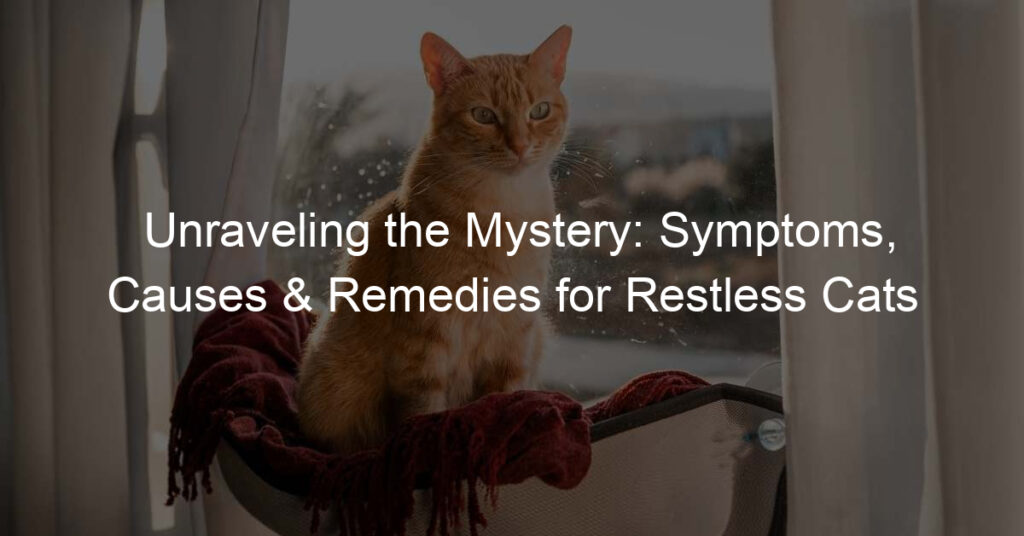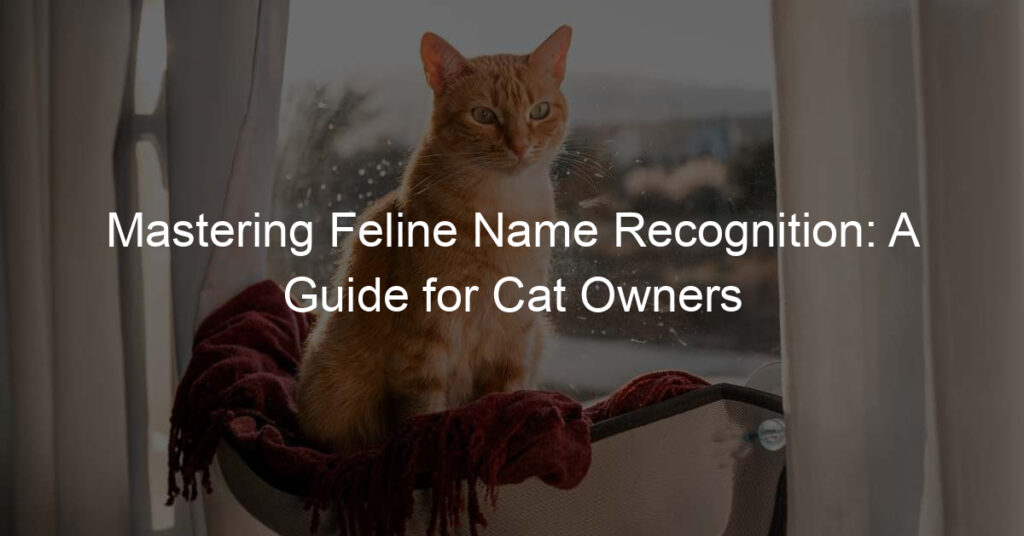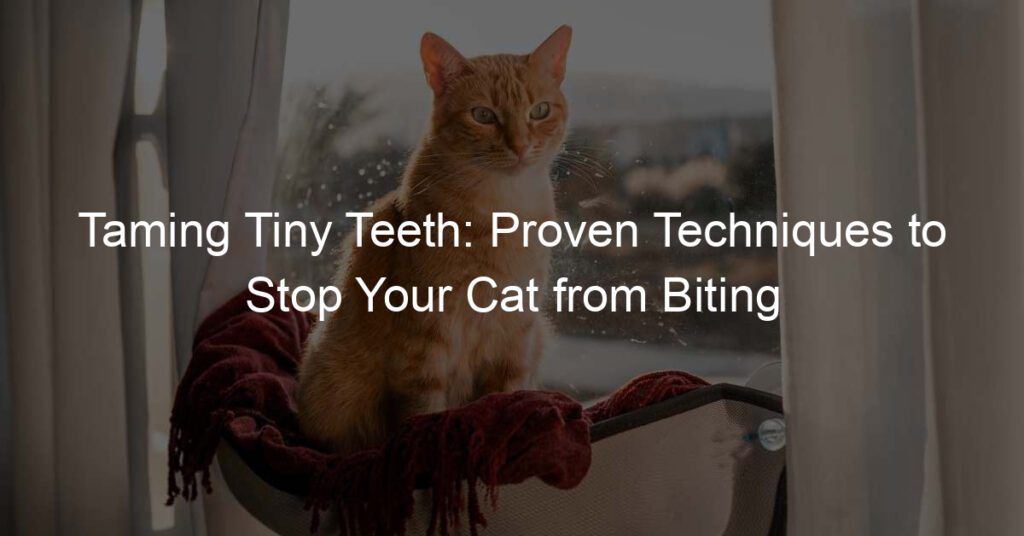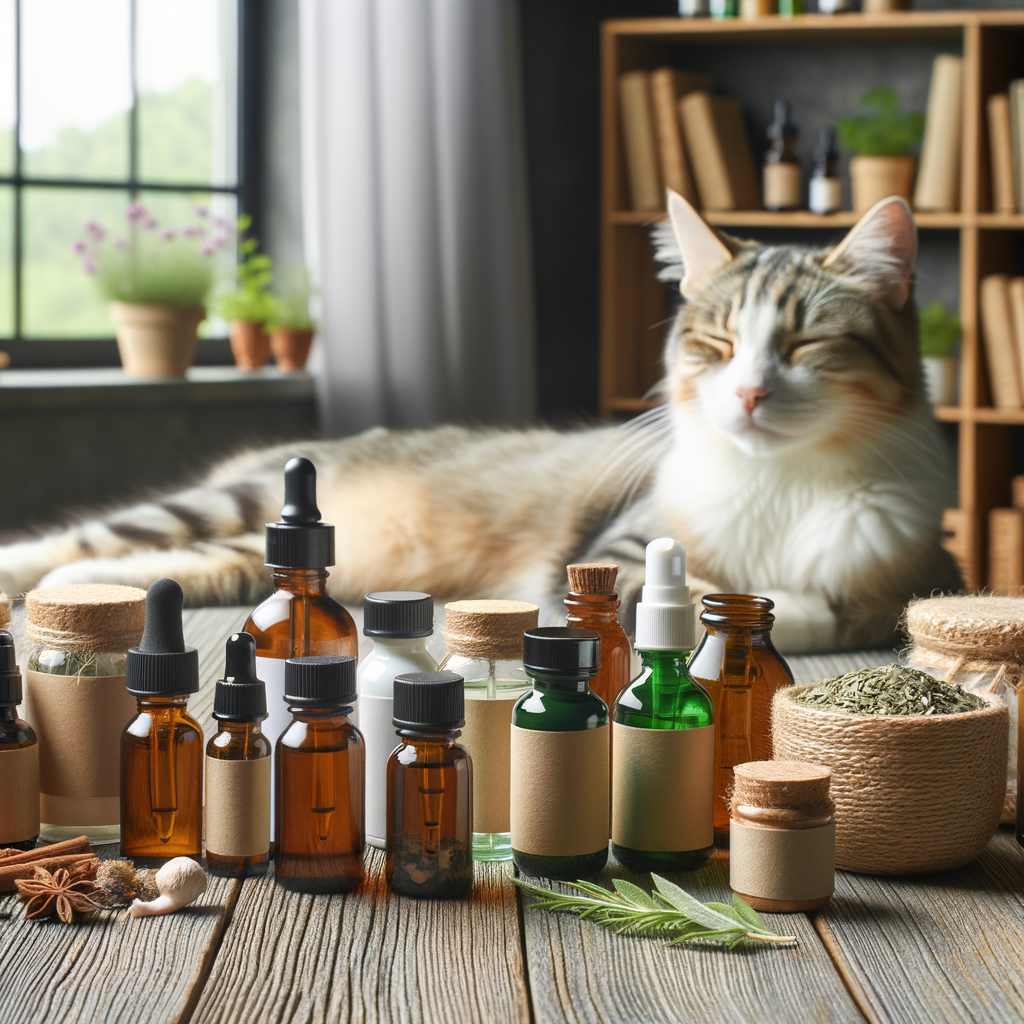
Introduction to Cat Anxiety
Just like humans, cats can experience anxiety. It’s a natural response to situations that are perceived as threatening or stressful. However, when these feelings become persistent, they can cause a variety of problems for our feline friends. In this section, we will explore what cat anxiety is and how to recognize its common signs.
- Understanding Cat Anxiety
- Common Signs of Anxiety in Cats
- Changes in appetite: An anxious cat may eat less or more than usual.
- Excessive grooming: Cats may over-groom themselves as a way to cope with stress, which can lead to bald patches or skin sores.
- Changes in behavior: An anxious cat may become more aggressive or hide more than usual.
- Changes in litter box habits: Cats may start to urinate or defecate outside their litter box when they are feeling anxious.
Cat anxiety is a complex condition that can be caused by a variety of factors. These can range from changes in their environment, such as moving to a new home, to traumatic experiences, like a visit to the vet. Cats are creatures of habit, and any disruption to their routine can lead to feelings of anxiety. It’s important to understand that cat anxiety is not a sign of a bad or misbehaving cat. Rather, it’s a sign that your cat is feeling stressed and needs your help to feel safe and secure again.
Recognizing the signs of anxiety in cats can be challenging, as they often hide their feelings as a survival instinct. However, there are some common signs that your cat may be feeling anxious. These include:
If you notice any of these signs in your cat, it’s important to consult with a veterinarian to rule out any underlying medical conditions and discuss possible treatments for anxiety.
In the following sections, we will explore natural remedies for cat anxiety, including sedatives, calming treatments, and home remedies. We will also share case studies and key takeaways to help you better understand and manage your cat’s anxiety.
Natural Cat Sedatives: An Overview
When it comes to calming our feline friends, there are a variety of options available. One such option is the use of natural cat sedatives. These are substances derived from nature that can help soothe and relax your cat, without the potential side effects of pharmaceutical sedatives.
- What are natural cat sedatives?
- Benefits of natural sedatives over pharmaceutical ones
Natural cat sedatives are substances that come from nature and can help to calm your cat. These can include herbs like chamomile and valerian root, certain types of catnip, and even essential oils like lavender. They work by interacting with your cat’s nervous system to help them relax and feel more at ease.
While pharmaceutical sedatives can be effective, they often come with a risk of side effects. These can range from mild, like drowsiness, to severe, like changes in behavior or physical health. On the other hand, natural sedatives are generally safer and gentler on your cat’s system. They can provide similar calming effects without the risk of harsh side effects. Plus, many natural sedatives can be easily incorporated into your cat’s routine, such as through their food, a diffuser, or a comforting massage.
In conclusion, natural cat sedatives can be a great option for helping your cat feel calm and relaxed. They offer a safe, gentle alternative to pharmaceutical sedatives, making them a popular choice for many cat owners. As always, it’s important to consult with your vet before starting any new treatment for your cat.
Top Natural Anxiety Remedies for Cats
When it comes to dealing with anxiety in cats, there are many natural remedies that can help. These remedies are safe, easy to use, and can provide your feline friend with the relief they need. Here are four of the top natural anxiety remedies for cats:
- Chamomile
- Valerian Root
- Catnip
- Bach Rescue Remedy for Pets
Chamomile is a herb that is known for its calming properties. It can help to soothe your cat’s nerves and reduce anxiety. You can give your cat chamomile by brewing a weak chamomile tea and adding a few drops to their food or water.
Valerian root is another herb that can help to reduce anxiety in cats. It has a calming effect and can help to promote sleep. You can give your cat valerian root by adding a small amount of the dried herb to their food.
Catnip is a plant that many cats love. It can help to reduce anxiety and promote relaxation. You can give your cat catnip by sprinkling a small amount of the dried herb on their toys or bedding.
Bach Rescue Remedy for Pets is a natural stress relief remedy that is safe for cats. It contains a blend of five flower essences that can help to reduce anxiety and promote calmness. You can give your cat Bach Rescue Remedy by adding a few drops to their water or directly onto their tongue.
Remember, every cat is unique and what works for one may not work for another. Always consult with your vet before starting any new treatment for your cat’s anxiety. With patience and the right natural remedy, you can help your cat live a happier, more relaxed life.
Calming Treatments for Cats: A Closer Look
When it comes to calming our feline friends, there are several options available. One of the most effective and natural methods is the use of herbal sedatives. Let’s take a closer look at these calming treatments for cats.
Herbal Sedatives for Cats
Herbal sedatives are a type of natural remedy that can help to reduce anxiety and stress in cats. They are made from plants that have calming properties and are often used as a safer alternative to traditional medications.
- Understanding herbal sedatives
- How to use herbal sedatives safely
Herbal sedatives work by interacting with the nervous system to help calm your cat. They are usually made from plants like chamomile, valerian, and catnip, which are known for their calming effects. These plants contain natural compounds that can help to reduce anxiety and promote relaxation.
It’s important to use herbal sedatives safely to ensure your cat’s health and well-being. Always follow the recommended dosage and consult with your vet before starting any new treatment. Start with a small amount to see how your cat reacts, and never force your cat to take anything they don’t want to.
Remember, every cat is unique and what works for one may not work for another. Always monitor your cat’s behavior and consult with a vet if you notice any changes.
Natural Anxiety Relief Techniques for Cats
When it comes to calming an anxious cat, there are several natural techniques that can be effective. These methods are safe, non-invasive, and can often be done at home. Here are three techniques that you can try:
- Massage Therapy
- Aromatherapy
- Music Therapy
Massage therapy is a great way to help your cat relax. This technique involves gentle stroking and kneading of your cat’s body, which can help to relieve tension and stress. It’s important to approach your cat calmly and gently, and to stop if they show any signs of discomfort. Studies have shown that regular massage can help to reduce anxiety levels in cats, making it a great natural remedy.
Aromatherapy uses essential oils to create a calming environment for your cat. Lavender, chamomile, and valerian are all known for their calming properties. However, it’s important to remember that cats have a much stronger sense of smell than humans, so the oils should be used sparingly and never applied directly to your cat’s skin. Always consult with a vet before starting any new treatment.
Music therapy is another effective technique for reducing anxiety in cats. Soft, classical music, or specially designed pet music can help to soothe your cat and reduce their stress levels. In a study conducted by the University of Wisconsin, it was found that cats showed a significant reduction in stress behaviors when exposed to music therapy.
Remember, every cat is unique and what works for one may not work for another. It’s important to try different techniques and see what your cat responds to best. Always consult with a vet if your cat’s anxiety continues or worsens.
Exploring Cat Calming Products
When it comes to managing your cat’s anxiety, there are several calming products available in the market. These products are designed to help soothe your cat’s nerves and reduce their stress levels. Let’s take a closer look at some of these products.
-
Calming Collars
Calming collars are a popular choice for many cat owners. These collars are infused with natural pheromones that mimic the ones produced by mother cats to comfort their kittens. When your cat wears this collar, they are exposed to these calming pheromones, which can help reduce their anxiety. It’s like a constant hug for your cat, providing comfort and reassurance throughout the day.
-
Calming Sprays
Calming sprays work in a similar way to calming collars. They contain natural pheromones that can help to soothe your cat’s nerves. You can spray this product in your cat’s favorite spots, their bed, or even in their carrier when you’re taking them to the vet. It’s a versatile product that can be used in various situations to help your cat feel more secure and relaxed.
-
Calming Treats
Calming treats are another great option for managing your cat’s anxiety. These treats are made with ingredients like chamomile and tryptophan, which are known for their calming effects. Not only do these treats help to reduce your cat’s anxiety, but they also serve as a tasty reward. It’s a win-win situation for both you and your cat!
Remember, every cat is unique and what works for one might not work for another. It’s important to try different products and see which one your cat responds to the best. Always consult with your vet before introducing any new products to your cat’s routine. With the right approach, you can help your cat lead a happier and less stressful life.
Home Remedies for Anxious Cats
While there are many products and treatments available to help soothe an anxious cat, there are also several home remedies that can be just as effective. These remedies are simple, cost-effective, and can be easily implemented in your daily routine. Let’s explore three of the most effective home remedies for anxious cats.
- Creating a Safe Space
- Regular Playtime
- Consistent Routine
One of the simplest ways to help alleviate your cat’s anxiety is by creating a safe space for them. This could be a quiet room, a cozy corner, or even a special cat bed. The key is to make this space a place where your cat feels secure and comfortable. You can add their favorite toys, a soft blanket, or even a piece of your clothing that carries your scent. This safe space can serve as a refuge for your cat when they are feeling anxious or stressed.
Regular playtime is not just fun for your cat, but it can also help reduce anxiety. Playtime provides a healthy outlet for your cat’s energy and can help distract them from their worries. Try to set aside at least 15-20 minutes each day for playtime. Use toys that engage your cat’s hunting instincts, such as laser pointers, feather wands, or toy mice. Remember, the goal is to make playtime fun and engaging for your cat.
Cats are creatures of habit and thrive on routine. A consistent daily routine can provide a sense of security and predictability for your cat, which can help reduce anxiety. Try to feed your cat, play with them, and clean their litter box at the same times each day. Any changes to this routine should be introduced gradually to avoid causing stress or anxiety.
In conclusion, creating a safe space, ensuring regular playtime, and maintaining a consistent routine are simple yet effective home remedies for anxious cats. By implementing these strategies, you can help your feline friend feel more secure and less anxious in their environment.
Natural Remedies for Cat Anxiety: Case Studies
Let’s delve into some real-life examples of how natural remedies can help alleviate cat anxiety. We’ll specifically look at two case studies: one involving the use of chamomile and the other focusing on the effects of a consistent routine.
- Case study 1: Using chamomile for cat anxiety
- Case study 2: The effects of a consistent routine
Meet Bella, a 3-year-old tabby cat who suffered from severe anxiety. Her owner, Mrs. Johnson, noticed Bella’s restlessness, excessive grooming, and loss of appetite. After researching natural remedies, Mrs. Johnson decided to try chamomile.
Chamomile is a herb known for its calming properties in humans, but it can also be beneficial for cats. Mrs. Johnson began by adding a few drops of chamomile extract to Bella’s water. Within a week, she noticed a significant change in Bella’s behavior. Bella was less restless, her excessive grooming reduced, and she started eating regularly.
This case study shows that chamomile can be an effective natural remedy for cat anxiety. However, it’s essential to consult with a vet before starting any new treatment for your pet.
Next, let’s look at Max, a 2-year-old Siamese cat. Max’s owner, Mr. Smith, noticed that Max would become anxious whenever there were changes in his daily routine. After consulting with a vet, Mr. Smith decided to establish a consistent routine for Max.
Mr. Smith started feeding Max at the same times each day, playing with him regularly, and maintaining a consistent bedtime. Over time, Max’s anxiety levels decreased significantly. He became more relaxed and less reactive to minor changes in his environment.
This case study demonstrates the importance of a consistent routine in managing cat anxiety. A predictable schedule can provide a sense of security for cats, reducing their stress levels.
In conclusion, natural remedies like chamomile and a consistent routine can be effective in managing cat anxiety. However, it’s crucial to consult with a vet before implementing any new treatments or changes in routine.
Cat Anxiety Treatment: Key Takeaways
As we conclude our discussion on cat anxiety and its treatment, let’s recap the most crucial points. Understanding these takeaways will help you better care for your feline friend and ensure they live a stress-free life.
- Importance of Recognizing Anxiety in Cats
- Benefits of Natural Treatments
- When to Consult a Vet
Recognizing anxiety in cats is the first step towards helping them. Cats, like humans, can experience stress and anxiety. Signs of anxiety in cats include excessive grooming, changes in eating habits, hiding, and aggression. Being aware of these signs can help you take early action and prevent further complications.
Natural treatments for cat anxiety are beneficial because they are safe, non-addictive, and have fewer side effects compared to pharmaceutical drugs. They can include things like catnip, chamomile, and valerian root. These treatments can help calm your cat, improve their mood, and reduce anxiety-related behaviors.
While natural treatments can be effective, it’s important to consult a vet if your cat’s anxiety symptoms persist or worsen. A vet can provide a proper diagnosis and recommend the best treatment plan. Remember, your cat’s health and wellbeing should always be your top priority.
Understanding and addressing cat anxiety is crucial for your pet’s overall health and happiness. By recognizing the signs, using natural treatments, and consulting a vet when necessary, you can help your cat live a more relaxed and enjoyable life.
Organic Sedatives for Cats: Final Thoughts
As we wrap up our discussion on organic sedatives for cats, there are two key factors to keep in mind. These include choosing the right organic sedative and ensuring safety when using these sedatives.
- Choosing the Right Organic Sedative
- Ensuring Safety When Using Organic Sedatives
Choosing the right organic sedative for your cat is crucial. Every cat is unique, and what works for one may not work for another. It’s important to consider your cat’s specific needs, health status, and preferences. For instance, some cats might respond well to herbal remedies like chamomile or valerian, while others might prefer pheromone-based solutions. It’s always a good idea to consult with your vet before introducing a new sedative to your cat’s routine.
Safety should always be a priority when using organic sedatives. Even though these products are natural, they can still have side effects if not used properly. Always follow the recommended dosage and monitor your cat’s reaction to the sedative. If you notice any adverse effects, such as excessive drowsiness, changes in appetite, or behavioral changes, stop using the product and consult your vet immediately.
In conclusion, organic sedatives can be a great tool to help manage your cat’s anxiety. However, they should be used responsibly and under the guidance of a professional. Remember, the goal is not to sedate your cat, but to help them feel more relaxed and comfortable in their environment.
